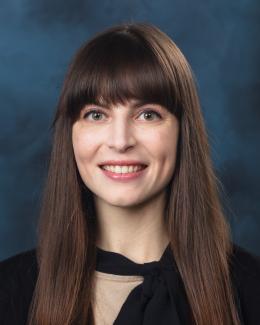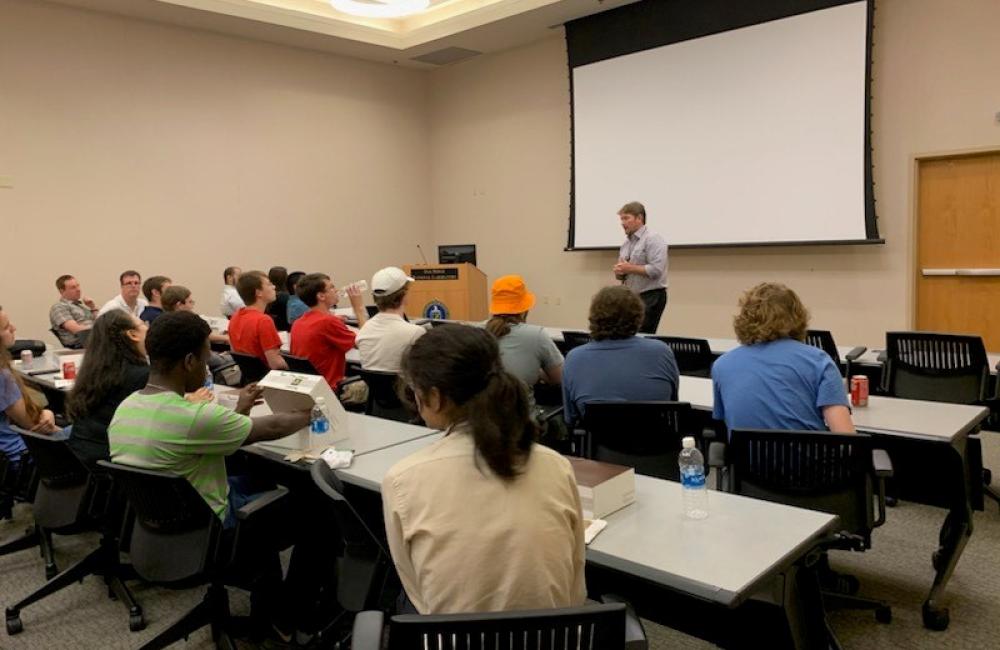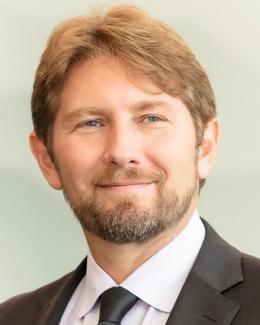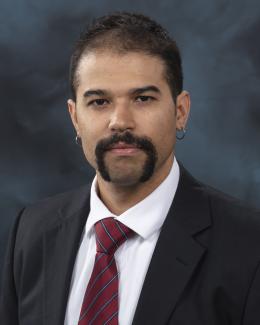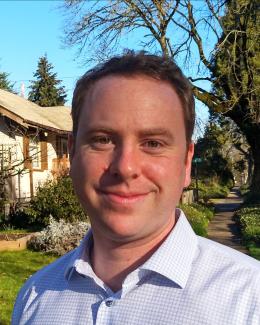ORNL’s Travis Humble, Quantum Science Center director, addresses students during a working lunch. Credit: Teresa Hurt/ORNL, U.S. Dept. of Energy
Quantum computing sits on the cutting edge of scientific discovery. Given its novelty, the next generation of researchers will contribute significantly to the advancement of the field. However, this new crop of scientists must first be cultivated.
In July, 30 students from the University of Tennessee, Knoxville visited the Quantum Science Center’s headquarters at the Department of Energy’s Oak Ridge National Laboratory to learn about career opportunities in quantum. The QSC is a DOE National Quantum Information Science Research Center that advances the field by connecting researchers across the government, academia and industry while also supporting workforce development efforts.
ORNL’s Travis Humble, Quantum Science Center director, welcomed students by introducing the center’s mission and encouraging them to share their academic backgrounds and interests. The group included graduate and undergraduate students studying physics, computer science and related fields.
“Our research is advancing quantum technologies to impact scientific discovery, innovation, national security and global economic competitiveness,” Humble said.
Following the opening remarks, ORNL research scientists and QSC members Vicente Leyton-Ortega, Daniel Claudino and Phillip Lotshaw provided an overview of their work in the growing discipline of quantum information science through a series of lightning talks.
Attendees first heard from Leyton-Ortega, who discussed the need for quantum computing simulators. He outlined some of the major problems that these technologies can solve.
Next, Claudino provided an overview of the QSC’s software engineering endeavors. He emphasized the importance of transferring knowledge from classical to quantum computing systems, a process that is required for research projects that use a hybrid approach.
In the final talk, Lotshaw highlighted the value of creating quantum algorithms to solve combinatorial optimization problems, which lay the groundwork for more complicated inquiries that sit at the intersection of physical and materials sciences.
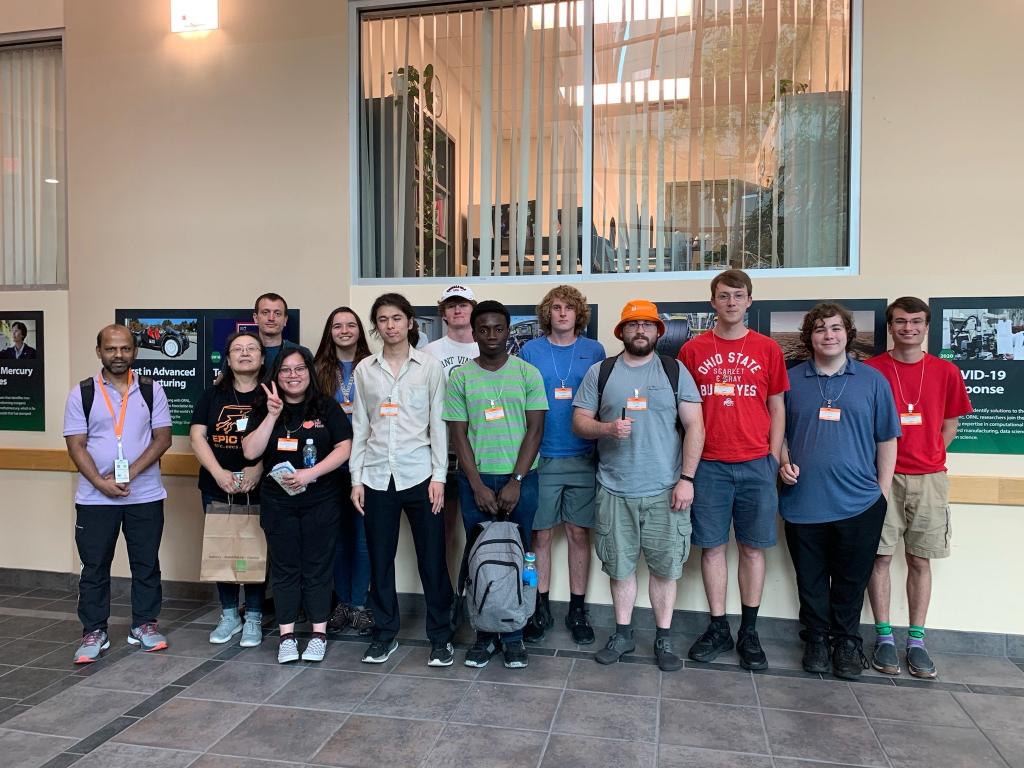
During their visit to the lab, the students toured multiple DOE Office of Science user facilities, including two relevant to materials science development and analysis: the Center for Nanophase Materials Sciences and the Spallation Neutron Source. They also toured the Oak Ridge Leadership Computing Facility, which houses Frontier, the world’s fastest supercomputer and the first to achieve exascale.
“It’s important to emphasize the realm of possibilities in science, especially in an emerging domain as interdisciplinary as quantum,” Humble said. “Today’s students will shape the future of research.”
The QSC, a DOE National Quantum Information Science Research Center led by ORNL, performs cutting-edge research at national laboratories, universities and industry partners to overcome key roadblocks in quantum state resilience, controllability and ultimately the scalability of quantum technologies. QSC researchers are designing materials that enable topological quantum computing; implementing new quantum sensors to characterize topological states and detect dark matter; and designing quantum algorithms and simulations to provide a greater understanding of quantum materials, chemistry, and quantum field theories. These innovations enable the QSC to accelerate information processing, explore the previously unmeasurable and better predict quantum performance across technologies. For more information, visit https://qscience.org.
UT-Battelle manages ORNL for DOE’s Office of Science, the single largest supporter of basic research in the physical sciences in the United States. DOE’s Office of Science is working to address some of the most pressing challenges of our time. For more information, visit https://energy.gov/science. — Reece Brown
